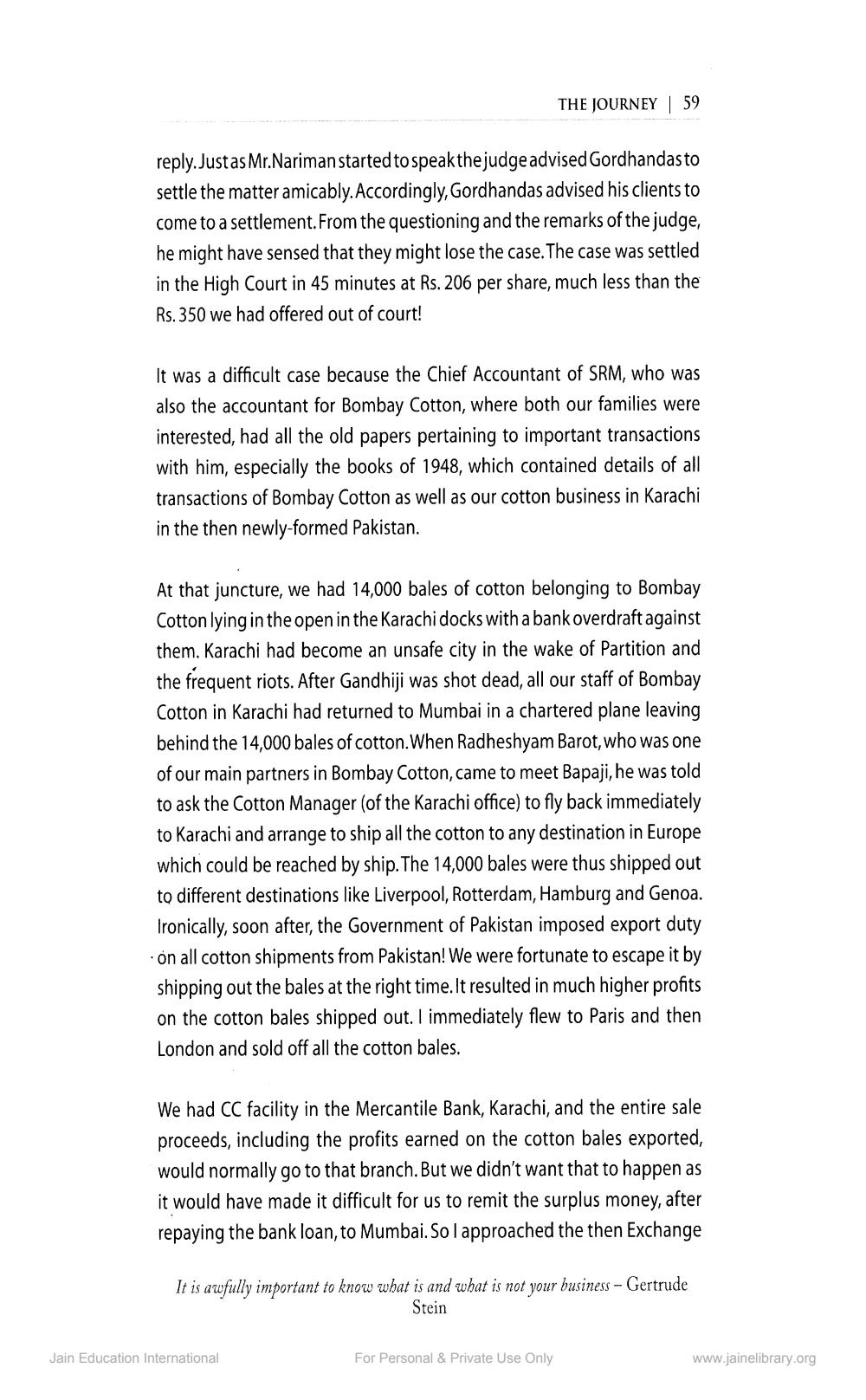________________
THE JOURNEY
59
reply. Just as Mr.Nariman started to speakthejudge advised Gordhandasto settle the matter amicably. Accordingly, Gordhandas advised his clients to come to a settlement. From the questioning and the remarks of the judge, he might have sensed that they might lose the case. The case was settled in the High Court in 45 minutes at Rs. 206 per share, much less than the Rs. 350 we had offered out of court!
It was a difficult case because the Chief Accountant of SRM, who was also the accountant for Bombay Cotton, where both our families were interested, had all the old papers pertaining to important transactions with him, especially the books of 1948, which contained details of all transactions of Bombay Cotton as well as our cotton business in Karachi in the then newly-formed Pakistan.
At that juncture, we had 14,000 bales of cotton belonging to Bombay Cotton lying in the open in the Karachi docks with a bank overdraft against them. Karachi had become an unsafe city in the wake of Partition and the frequent riots. After Gandhiji was shot dead, all our staff of Bombay Cotton in Karachi had returned to Mumbai in a chartered plane leaving behind the 14,000 bales of cotton.When Radheshyam Barot, who was one of our main partners in Bombay Cotton, came to meet Bapaji, he was told to ask the Cotton Manager (of the Karachi office) to fly back immediately to Karachi and arrange to ship all the cotton to any destination in Europe which could be reached by ship. The 14,000 bales were thus shipped out to different destinations like Liverpool, Rotterdam, Hamburg and Genoa. Ironically, soon after, the Government of Pakistan imposed export duty on all cotton shipments from Pakistan! We were fortunate to escape it by shipping out the bales at the right time. It resulted in much higher profits on the cotton bales shipped out. I immediately flew to Paris and then London and sold off all the cotton bales.
We had CC facility in the Mercantile Bank, Karachi, and the entire sale proceeds, including the profits earned on the cotton bales exported, would normally go to that branch. But we didn't want that to happen as it would have made it difficult for us to remit the surplus money, after repaying the bank loan, to Mumbai. Sol approached the then Exchange
It is awfully important to know what is and what is not your business - Gertrude
Stein
Jain Education International
For Personal & Private Use Only
www.jainelibrary.org




